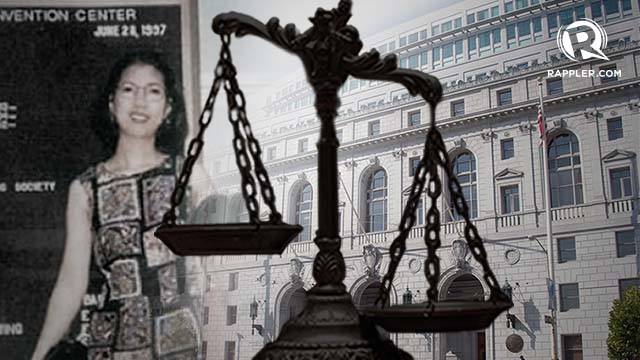SUMMARY
This is AI generated summarization, which may have errors. For context, always refer to the full article.

SAN FRANCISCO, USA – It was arguably one of the worst cases of domestic violence the city had ever seen. 13 years ago, Claire Joyce Tempongko was found stabbed to death.
Reports say she suffered 17 stab wounds after being attacked by her boyfriend at the time, Tari Ramirez, who now goes by the name “Tari Beltran.”
Beltran fled to Mexico immediately following the murder. He was caught in Acapulco in 2006, extradited, and then convicted of 2nd degree murder in 2008.
The Tempongkos and their supporters breathed a sigh of relief after the conviction. But that relief—unfortunately for the family— was only temporary. A state appellate court ruled 2-1 in 2011 in favor of invalidating the conviction, stating that a jury may not have considered manslaughter because Judge Robert Dondero’s definition of the crime was “flawed.”
“What distinguishes murder or manslaughter (which 2nd-degree is often known as), is the presence of malice aforethought,” said Carina Castañeda, a California-based attorney who also specializes in criminal law.
“In its simplest definition, express malice means that you specifically intend to kill the victim. Malice is implied when, the killing resulted from an intentional act, a natural consequence of the act is dangerous to human life or the act was deliberately performed with knowledge of the danger to, and with disregard, for human life,” Castañeda added.
“All we want is to sleep soundly at night,” Clara Tempongko once told Philippine News, a weekly Fil-Am newspaper, after the conviction was overturned in 2011. Clara was active in helping organize community support shortly after the murder.
Domestic violence
The California Supreme Court began hearing oral arguments on March 5 to decide whether to uphold the original conviction or to grant Beltran a new trial.
“The October 2000 murder of Claire Joyce Tempongko shook the city to its core,” responded District Attorney George Gascon to a query by Rappler.
“Her brutal murder sparked a movement that created significant changes to our city’s response to domestic violence,” Gascon said.
Beltran’s attorney, Linda Leavitt, could not be reached for a statement.
Leavitt argued in court that Beltran’s actions were beside the point.
“It’s not, did he stab her once or stab her 10 times, it’s did he lose the mental state?” she said during the hearing. The attack was reportedly provoked when Tempongko revealed that she aborted her baby which Beltran was assumed to be the father of.
Leavitt argued that Beltran acted irrationally and therefore “negated malice.”
The murder was not the first time Beltran attacked Tempongko. Police records revealed that Tempongko had called the police on Beltran on multiple occasions. He spent 4 months in prison in 1999 for attacking Tempongko and was required by the court to attend domestic violence classes for a year. Claire was murdered that same year.
Claire’s story inspired many community organizations to strengthen their advocacy against domestic violence. One such organization is the San Francisco Bay Area-based Alliance for Community Empowerment.
“The killing sparked reforms in San Francisco’s legal and law enforcement policies on intimate partner violence cases, especially after the decision in the civil lawsuit filed by the Tempongkos found serious gaps in the city’s responses to those cases,” said Cherie Querol Moreno, founder and executive director of the ALLICE. Moreno is also the executive editor of Philippine News.
In denial
ALLICE is a decade-old volunteer organization that hosts free events annually in collaboration with different groups to raise awareness about fostering healthy relationships and combating domestic abuse, especially in the immigrant communities.
“For the Fil-Am community, the tragedy fueled the movement against domestic violence, giving rise to organizations advocating for prevention and intervention programs,” Moreno said.
She recounted to Rappler how the organization was born after attending a Tempongko Vigil. “I formed ALLICE Kumares & Kumpares in 2003 soon after attending a vigil for Claire Joyce and noticing only a handful of Filipinos were present,” she said.
“There was a discomfort in discussing, if not denial, that domestic violence happens in our community, as it does everywhere,” she added.
ALLICE “shattered” those misperceptions, Moreno said.
D.A. Gascon told reporters he believes the conviction will stand. “I am confident that our justices will carefully consider the overwhelming evidence presented at trial and our supreme court will reverse the lower court’s ruling and affirm the 2nd-degree murder conviction,” he concluded.
The Court has to make its decision to affirm or invalidate the conviction by June 5. – Rappler.com
Add a comment
How does this make you feel?
There are no comments yet. Add your comment to start the conversation.